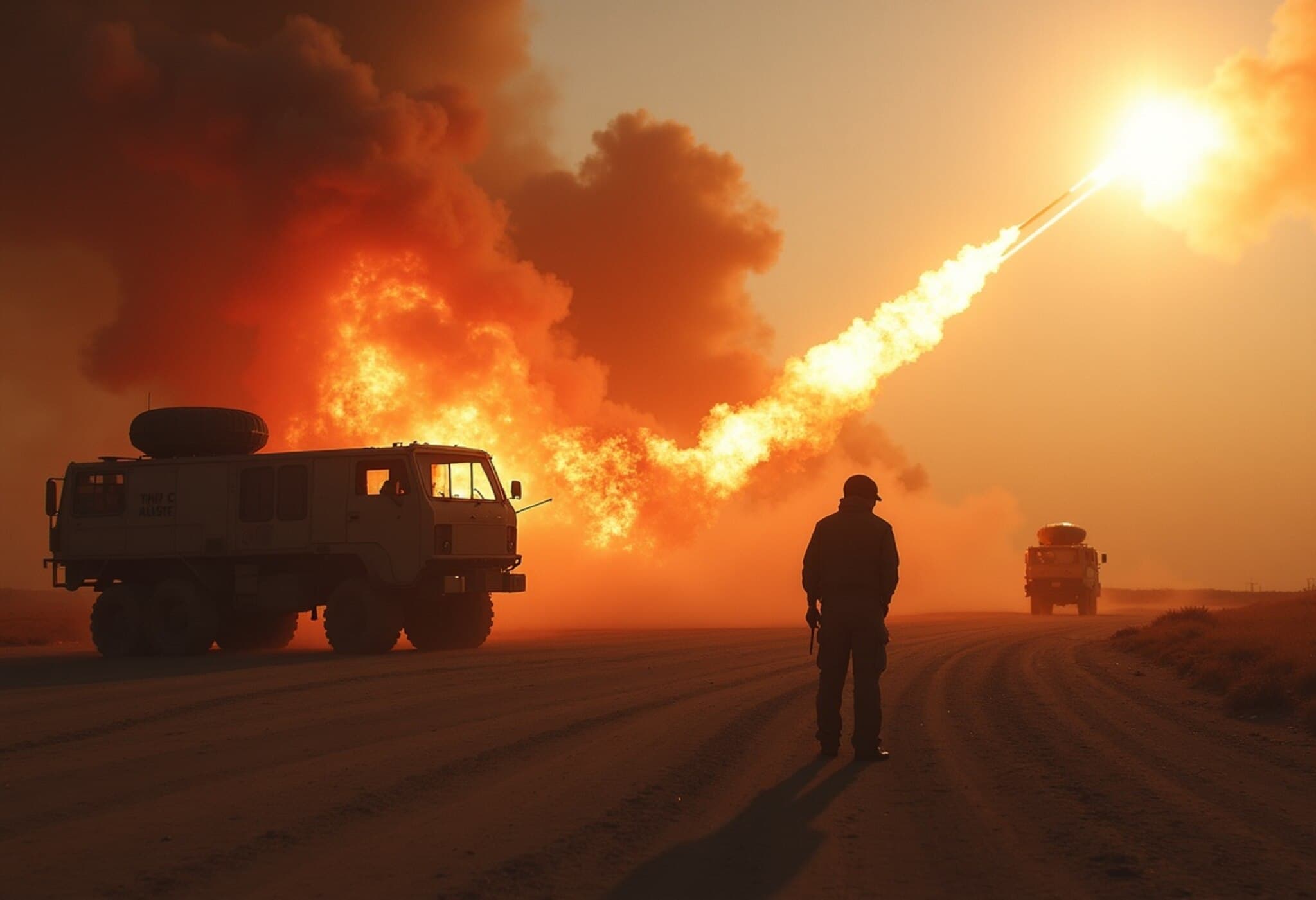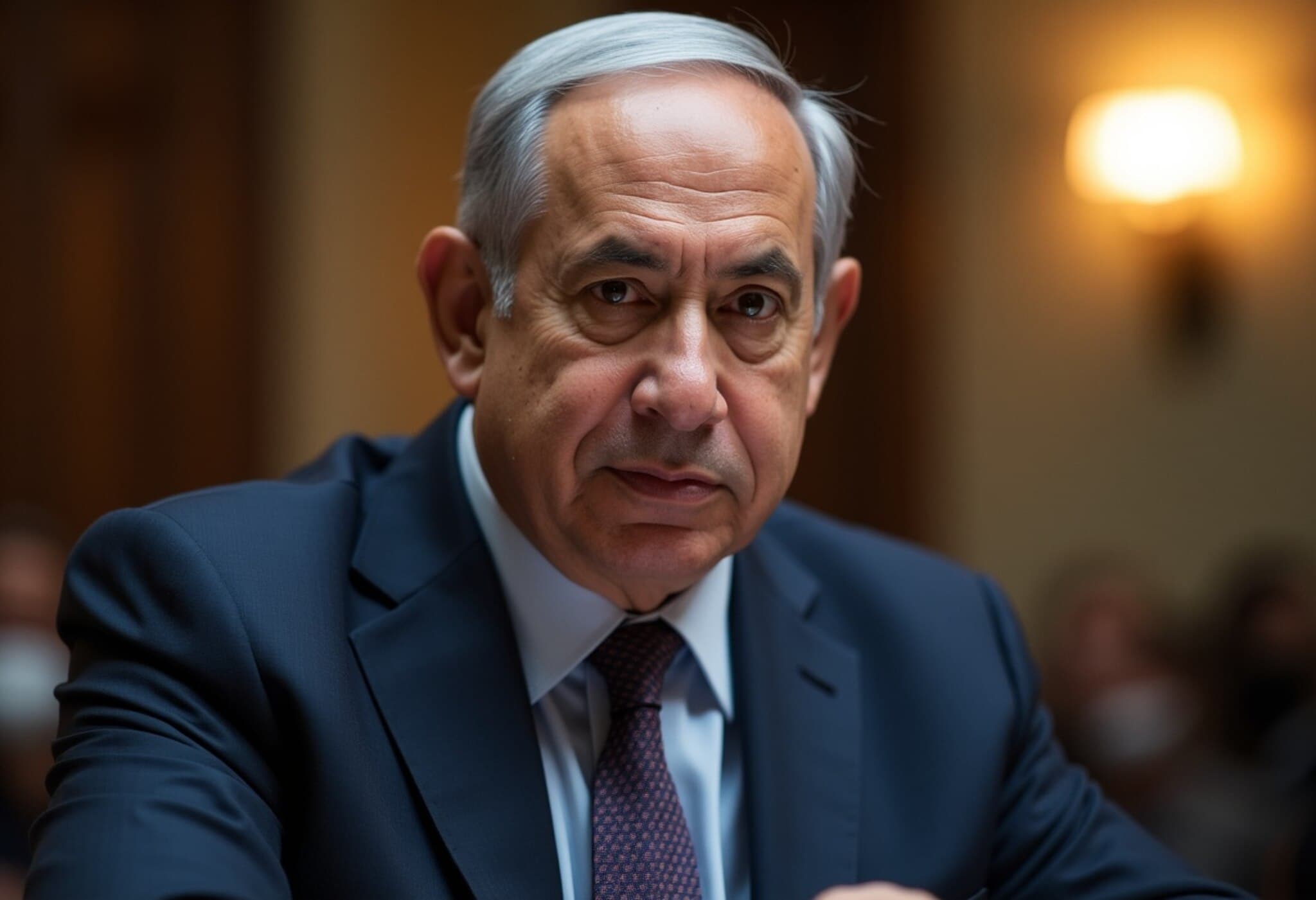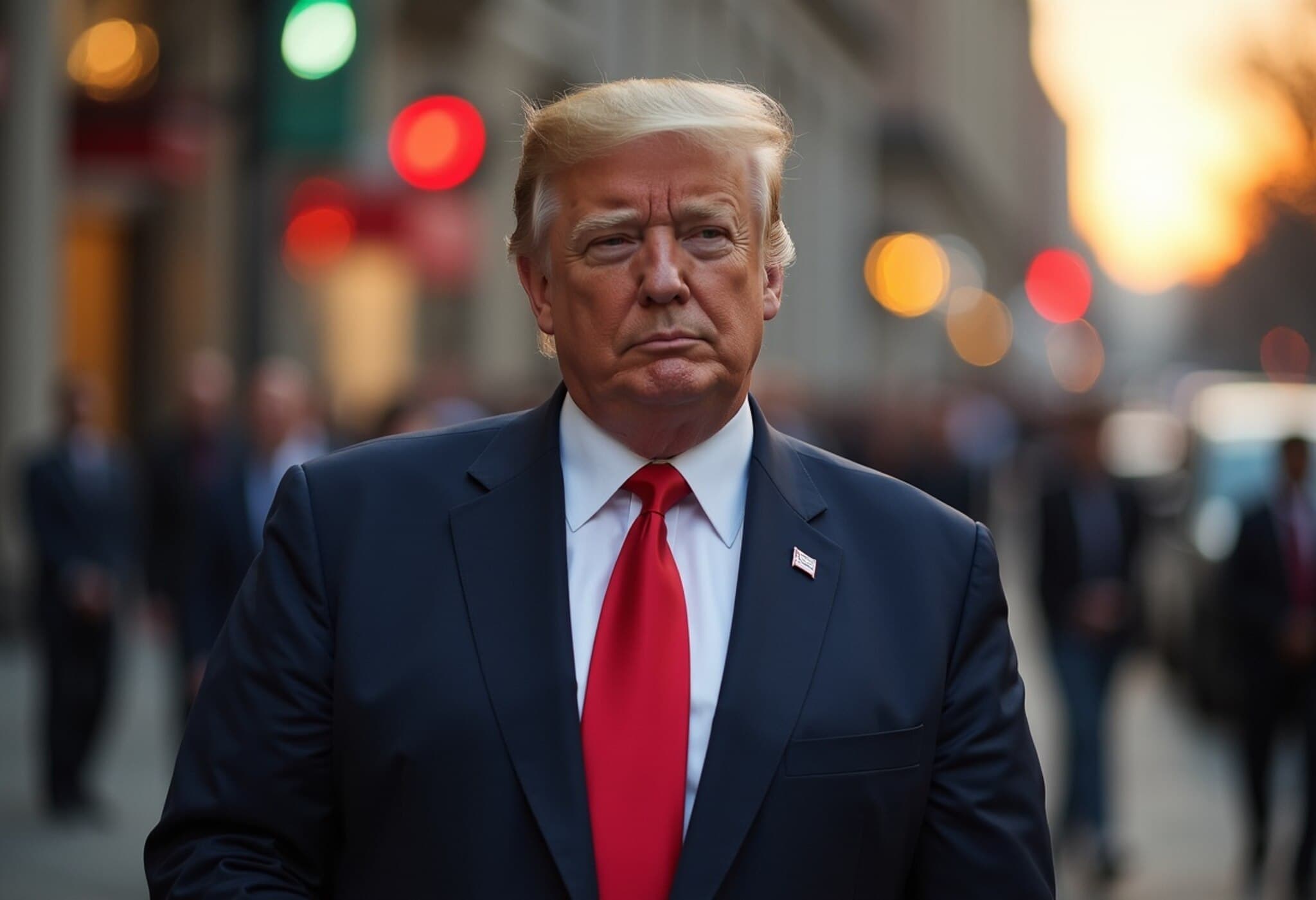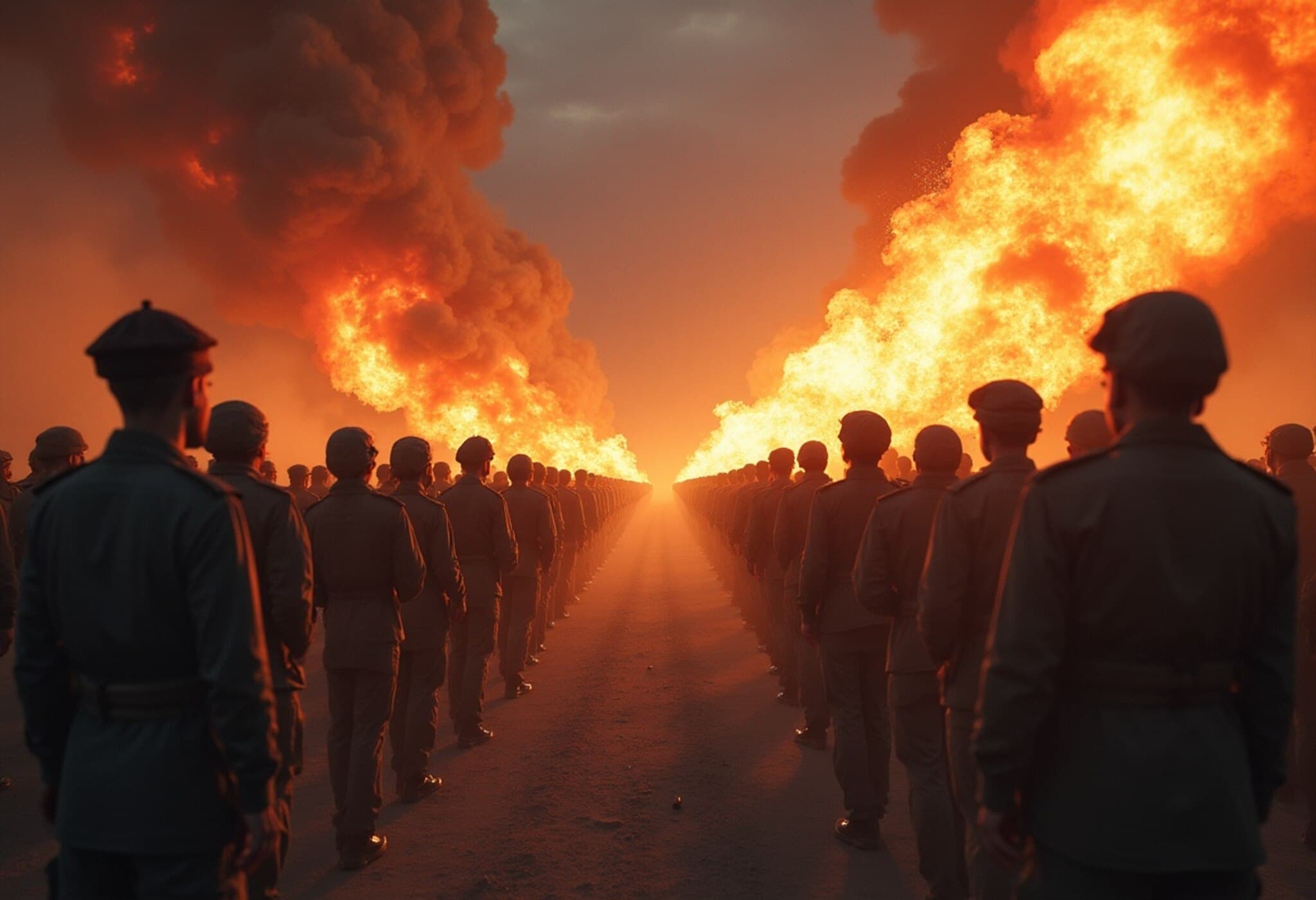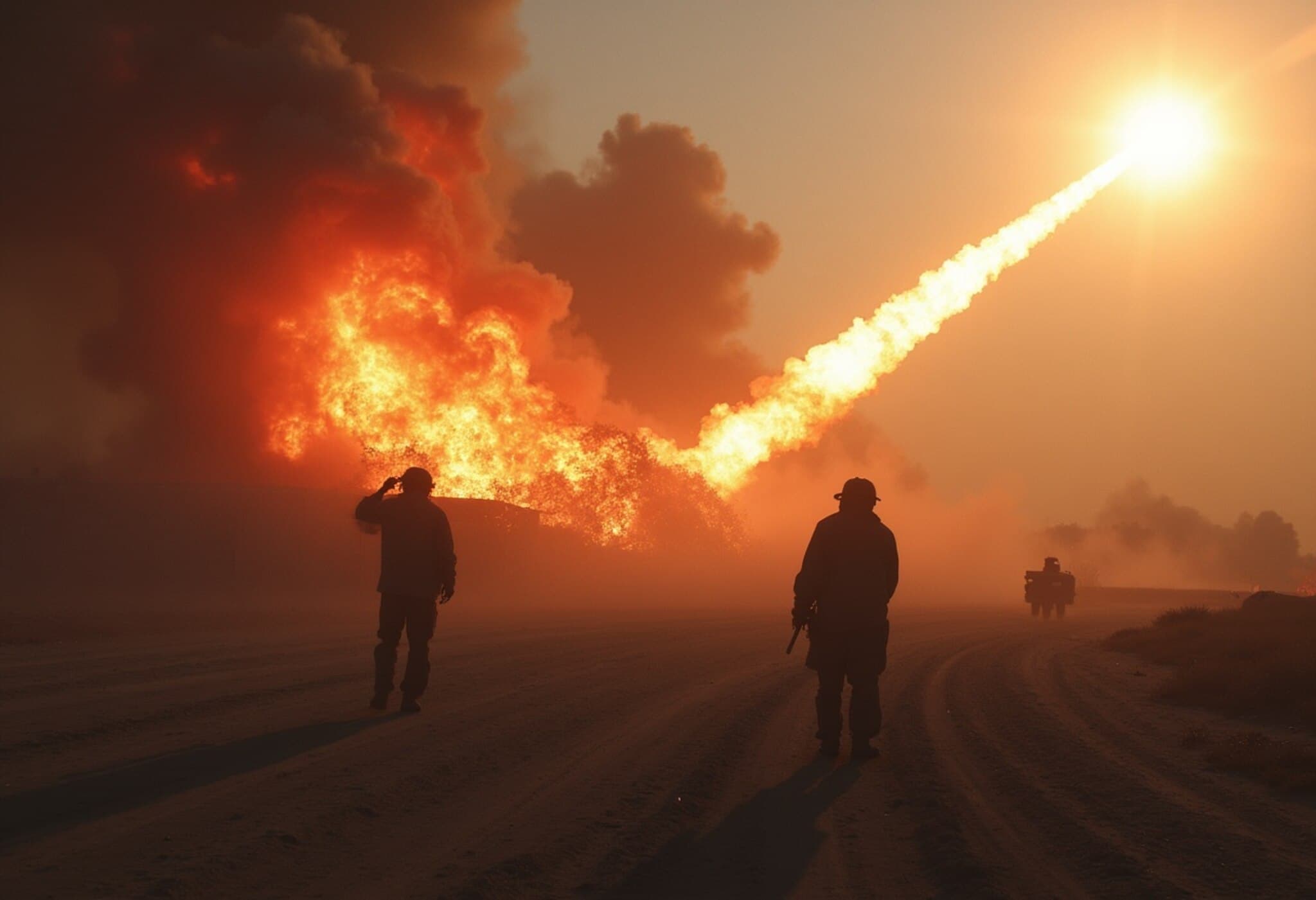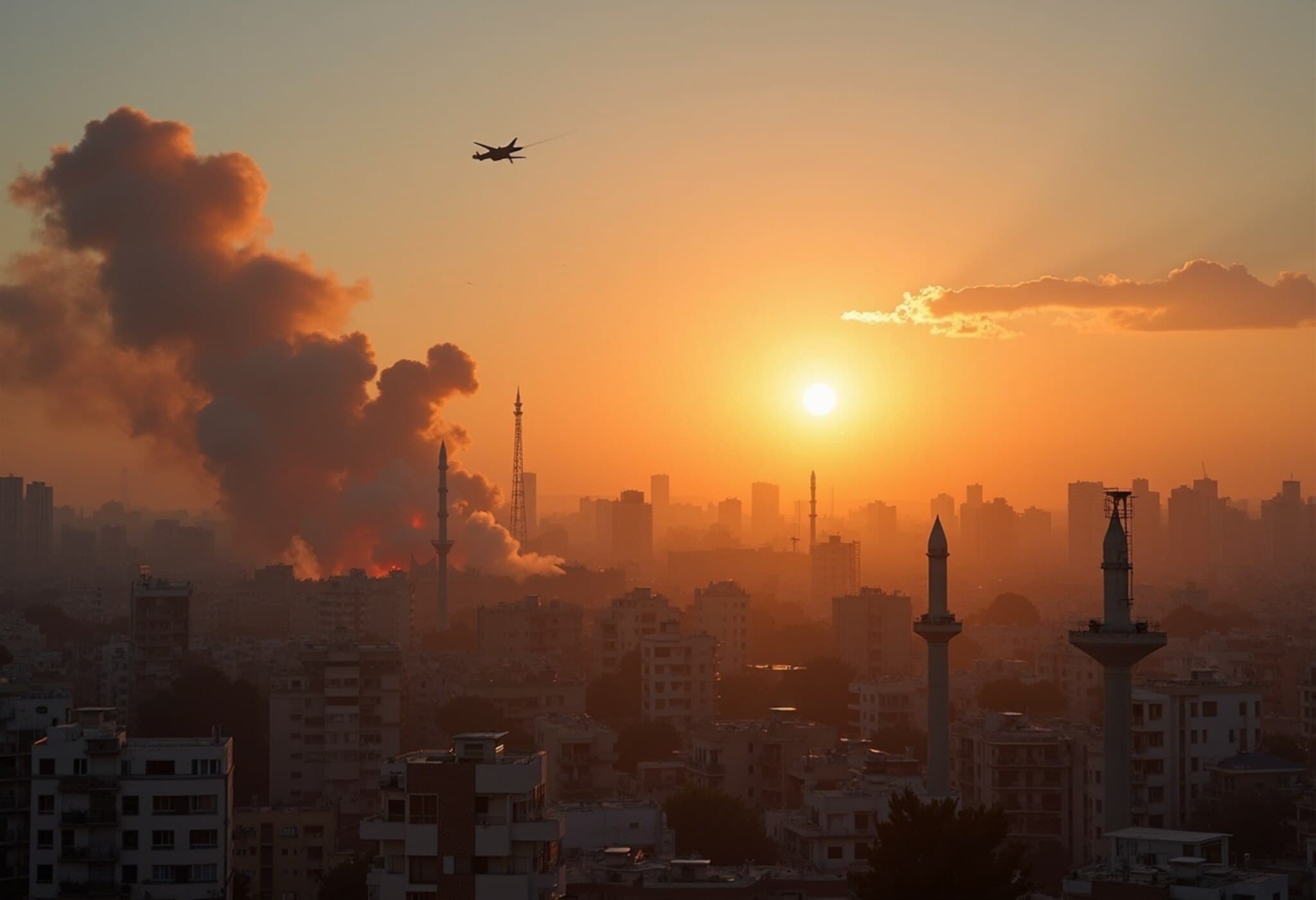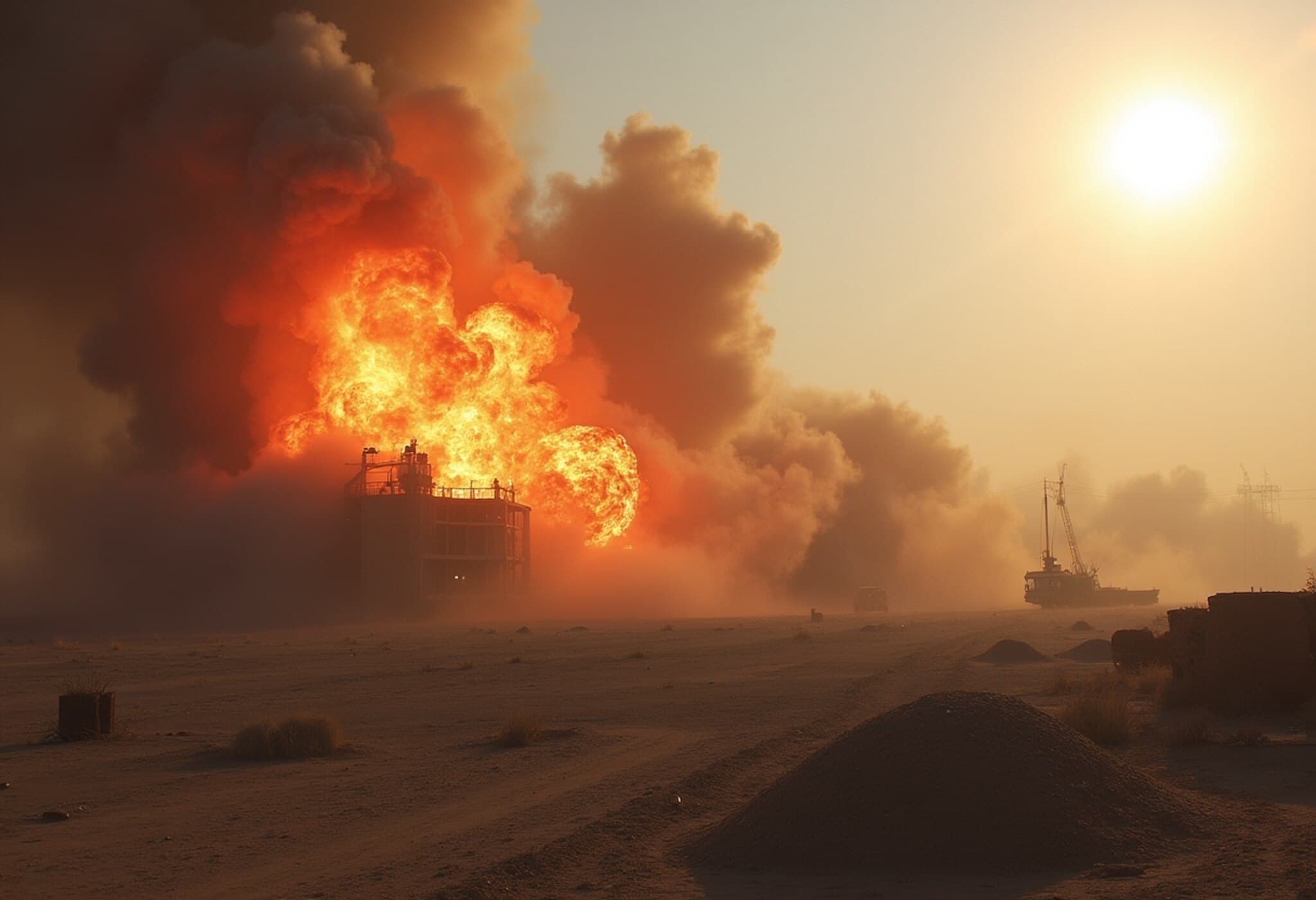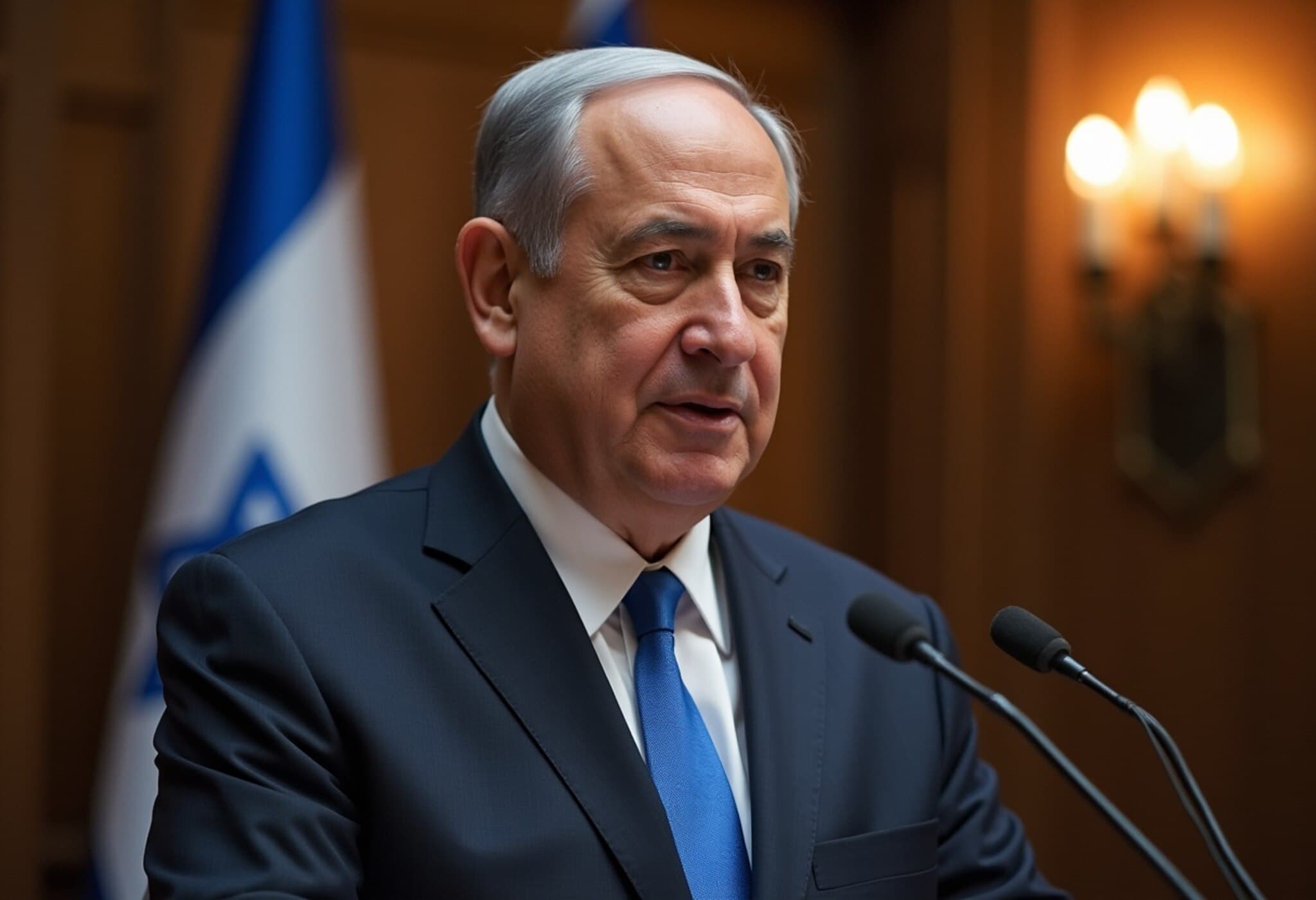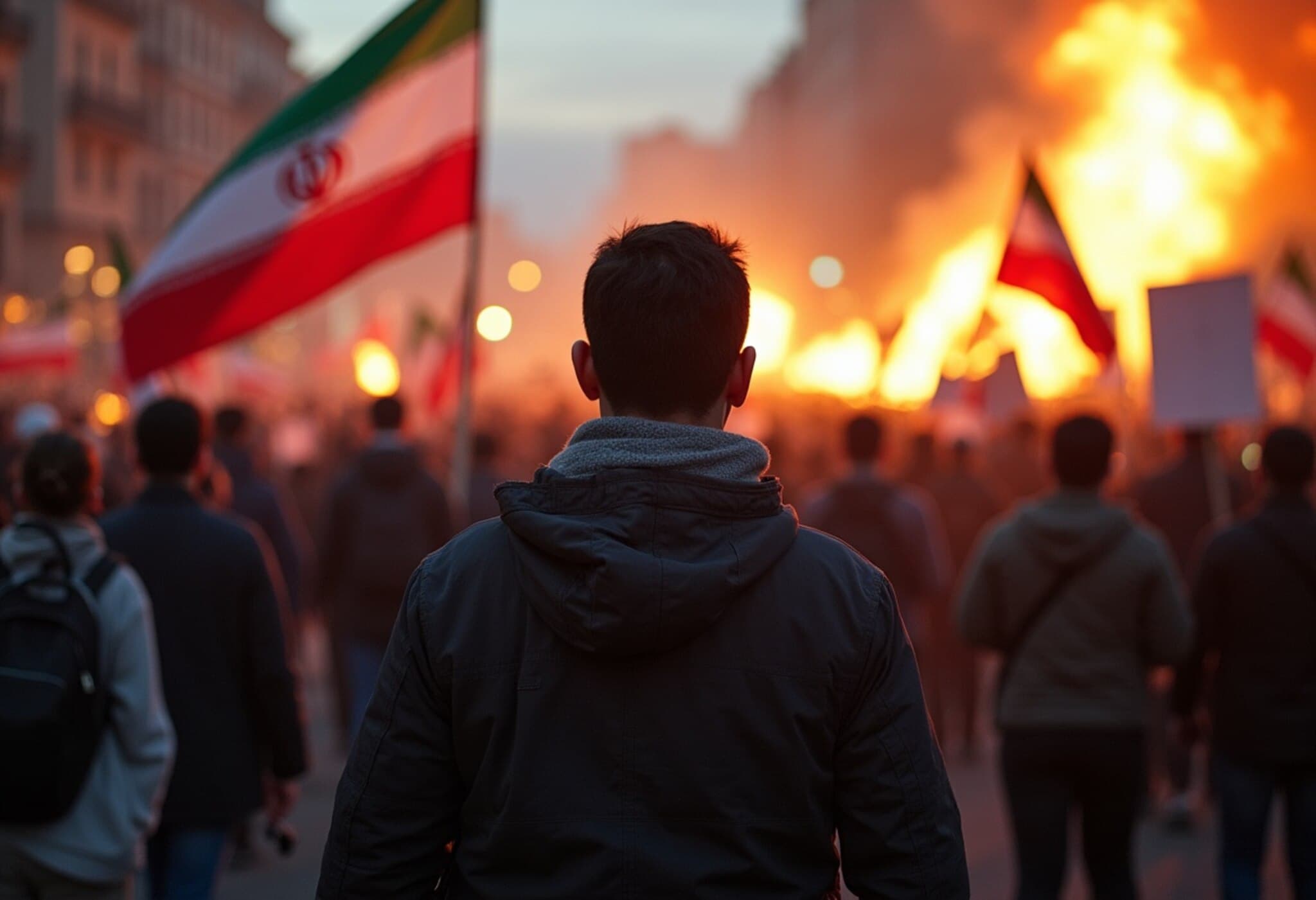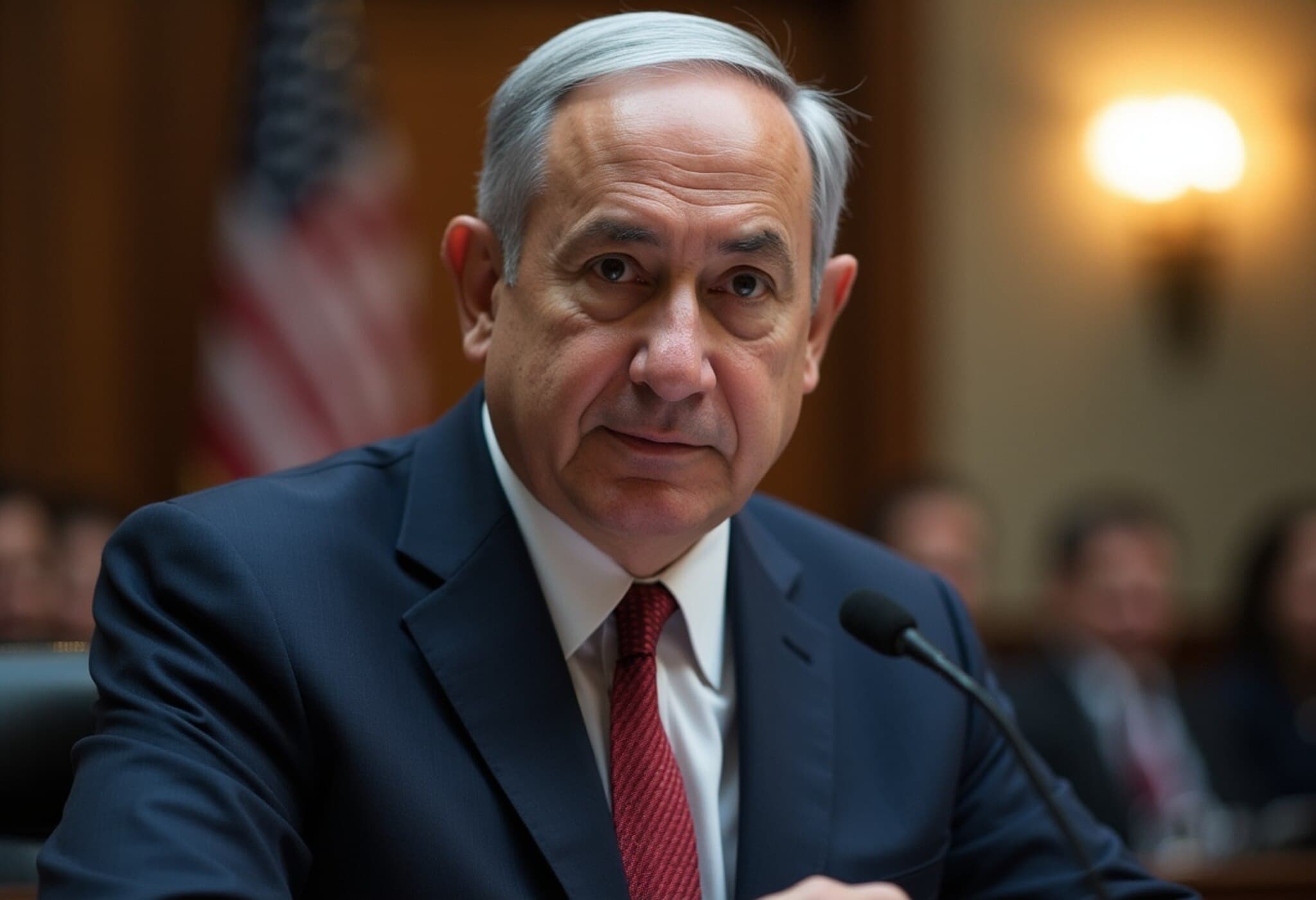Escalating Israel-Iran Conflict Raises Stakes in the Middle East
Over a week into the clashes between Israel and Iran, tensions remain alarmingly high following a series of missile and drone attacks. The conflict intensified after Israel launched airstrikes targeting Iranian nuclear and military sites, triggering swift retaliation from Tehran. With hundreds of casualties and fears of a wider regional conflagration growing, the situation is precarious.
US Considers Military Intervention as Diplomatic Clock Ticks
Trump Signals Decision Within Two Weeks
President Donald Trump has indicated that a decision on whether the United States will intervene militarily could come within the next two weeks. Speaking from the Oval Office, he emphasized a reluctance to fight but acknowledged the necessity should Iran pursue nuclear weapons unchecked. “I may do it, I may not do it. Nobody knows what I’m going to do,” Trump remarked, underscoring the uncertainty as diplomatic efforts continue in parallel.
Reports suggest the US is contemplating a strike on Iran’s fortified Fordo nuclear facility, accessible only by specialized “bunkerbuster” bombs. The tense wait for Washington’s next move has prompted military repositioning and strategic recalculations.
Striking Blow to Iranian Leadership
The initial Israeli airstrikes reportedly eliminated several senior Iranian officials, including a high-ranking intelligence chief of the Islamic Revolutionary Guard Corps (IRGC). Targeting Iran’s nuclear research centers, ballistic missile sites, and Quds Force-linked facilities, Israel aims to dismantle Tehran’s capacity for retaliation and nuclear advancement.
Although Iranian sources have not formally acknowledged the losses, experts warn the removal of key IRGC figures could disrupt Iran’s military coordination and escalate missile attacks.
Human Impact: Cluster Bomb Damage on Israeli Hospital
An Iranian missile equipped with cluster munitions struck Beersheba’s Soroka Medical Center, injuring at least 80 medical staff and patients. Cluster bombs scatter multiple submunitions over a broad area, creating widespread danger. Damage to the hospital’s critical systems—including gas, water, and air conditioning—intensified challenges.
Iran denies targeting the hospital directly, claiming the missile was aimed at a nearby military technology site. Israeli officials acknowledged there was no specific intelligence suggesting the hospital would be hit. Notably, prior preparations by Israeli hospitals to move vulnerable patients underground likely prevented greater casualties.
Direct Threats and Political Rhetoric Amplify Tensions
Israel’s Defence Minister, Israel Katz, delivered one of the most explicit threats yet by declaring that Iran’s Supreme Leader Ayatollah Ali Khamenei “should not continue to exist.” This blunt statement marked an escalation in rhetoric amid the ongoing conflict.
Though Israel has previously accused Khamenei of sponsoring terrorism, calls for his elimination are rare and fraught with risk. US officials reportedly vetoed a covert Israeli plan to assassinate Khamenei, with Trump confirming no current intention to pursue such action.
US Military Movements Hint at Strategic Repositioning
Satellite images reveal an unusual absence of US military aircraft at Al Udeid Air Base in Qatar, a critical hub in the region. This disappearance suggests redeployment or concealment of aircraft, fueling speculation about preparations for possible strikes or efforts to protect assets from Iranian retaliation.
Analysts propose that some US forces might be shifting to naval platforms in the Persian Gulf, enhancing stealth and tactical flexibility as the situation develops.
Prime Minister Netanyahu Shares Personal Toll Amid National Crisis
Prime Minister Benjamin Netanyahu publicly reflected on his family’s sacrifices, revealing that his son’s wedding was postponed twice due to missile threats. Speaking at Soroka hospital, he likened the experience to the British Blitz during World War II, aiming to evoke resilience and solidarity.
However, many criticized Netanyahu’s remarks as disconnected from the ongoing civilian suffering, with over 20 Israeli lives lost so far. The analogy sparked controversy amid the harsh realities on the ground.
Diplomatic Efforts Offer Fragile Hope
In Geneva, diplomatic talks involving Iran, the European Union, and the United Kingdom signal a narrow opening for negotiations. British and EU officials emphasize a critical window to halt escalation and revive discussions around Iran’s nuclear program within the coming weeks.
This diplomatic initiative aligns with the timeframe set by President Trump’s pending decision and aims to prevent further deterioration.
Communication Blackout in Iran Obscures Conflict Details
Iran’s widespread internet restrictions have severely limited the flow of information, making it difficult to verify reports of casualties and damage. Prior warnings to evacuate industrial zones in cities like Rasht may not have been widely received.
Residents of Tehran and Isfahan have reported hearing anti-aircraft fire, but the media blackout hinders international assessments and complicates humanitarian aid efforts.
US-Israel Coordination Faces Strains Amid Diverging Approaches
While President Trump and Prime Minister Netanyahu share an overarching goal of deterring Iran’s nuclear ambitions, tactical differences have emerged. Trump’s veto of an Israeli assassination plan against Khamenei contrasts with Netanyahu’s more aggressive stance.
Trust remains, with Netanyahu expressing confidence in Trump’s judgment and acknowledging significant US support. Nonetheless, the evolving conflict may challenge the depth of US-Israel alignment if diplomacy fails to contain violence.
Regional Conflict Risks Spreading Beyond Israel and Iran
The war between Israel and Iran carries broader regional implications, especially considering Tehran’s alliances with groups like Hezbollah and Hamas. The volatility in Gaza following previous attacks exacerbates the danger of a multi-front war.
Any miscalculation now could drag additional actors into the chaos, potentially igniting a larger Middle Eastern conflict. The coming days will be crucial in determining whether diplomatic efforts can contain the crisis or if wider war looms on the horizon.

